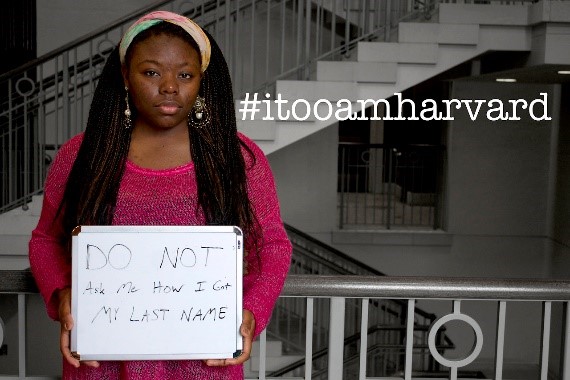
Harvard’s decision last month to rescind admission to Kyle Kashuv because of nasty racial tweets he sent three years ago is a curiously unprincipled action. Kashuv is obviously contrite. He shows all the indications of a reformed sinner eager to undergo Harvard’s diversity training. One would think that an institution so solemnly dedicated to social justice as Harvard—“we strongly believe that one of our greatest strengths is our incredibly diverse campus community”–would welcome a rogue ready to enter the haven of tolerance. And they would in this case, too—but there are other considerations.
The powers that be fear what admission to Mr. Kashuv would mean. It’s not that they have concerns about what he wrote on his social media in the past. It’s that they worry about what his presence on campus will mean in the future. Harvard is the richest U.S. school, with an endowment of $40 billion. It is the oldest college in America, established in 1636. Eight US presidents have attended Harvard. But the people who work there, from the president down to the graduate student teaching assistant tread very softly when it comes to issues of racism, especially relative to African Americans.
In the Age of Trump, race issues have become a national point of controversy over and over, but Harvard has a local situation to deal with as well. Back in 2007, the Black Men’s Forum, a student group at Harvard, organized a march to protest incidents of racial profiling on the campus. “My skin belongs at Harvard!” they chanted, “Harvard is here for us, too!” As one participant put it several years later, “We had bombarded the comments sections of college publications and run campaigns to handle racist professors, demand black student spaces on campus, and prove the lack of support for black students.” No doubt, some Harvard administrators remember that episode.
They read this piece last year in Thinkprogress.org, too, written by a female undergraduate: “What is it like to be black at Harvard? Let me tell you.” And they know, too, of the “I, Too, Am Harvard” project, conceived by a 2016 Harvard grad, which, among other things, tallies the nonstop microaggressions black students suffer on campus and in Cambridge.

That was the background of the Kashuv situation. Administrators at Harvard had a difficult choice to make once Kashuv’s tweets surfaced. However much they might excuse the silly things, a high school sophomore guy does, and while some probably wanted to forgive him his stupidity, they had to consider the effect on other students if a kid showed up in their classes who was famous for tweeting the n-word.
The administrators at Harvard bear the burden of anticipating racial controversies well before they can happen. Indeed, they have put themselves in this position. Keep in mind that black students at Harvard have been aggressively recruited from high school. They had offers from Princeton, Columbia, Yale Harvard drew them not only because of its prestige, but because, as the college brochures and the president’s speeches told them, Harvard is a wondrous domain of diversity and inclusion. The admissions people promised them repeatedly that they would thrive at Harvard in an environment of happy affirmation.
How could Harvard keep Kashuv after it has proclaimed it maintains zero tolerance for racism? Think about the possibility that some students of color who will land at Harvard next year faced some racial harassment during high school, perhaps over social media. If Harvard were to keep Mr. Kushuv, those minority high schoolers would realize that the insults they endured in 10th Grade, over Facebook or Instagram, are not a disqualification for the insulters. The nastiness hurt, and the memory of them linger. Does Harvard really want to reward the people who victimized them? That’s what the administrators think to themselves. It will make them angry, especially the black students who’ve been admitted to Harvard. They might very well crowd into the admissions dean’s office and demand that someone is fired.
This is the calculation Harvard administrators had to make. Principles and ethics here are less important than the impact on incoming undergraduates. No official wants a repeat of the Black Lives Matter protests of 2014, which did indeed lead to some removals of personnel. Harvard didn’t rescind Kushuv’s acceptance because he wrote obnoxious things in high school. Harvard did it because it knows that it has made grand pledges to prized students, who as a result, judge the social climate of the campus vigilantly. Harvard administrators consider the sacrifice of one admittee who has embarrassed himself a small price to pay for a calmer Fall 2019 semester.
My take on this was quite different — Harvard needs to get sued and lose a chunk of that $40,000,000,000 endowment…
1: Promissory Estoppel — basic contract law and suing for breach of contract.
Not only did Kyle Kashuv pay an application fee (consideration) to Harvard, but he acted on their promises — he turned down acceptances and scholarships elsewhere when Harvard accepted him. Why isn’t he entitled to damages — the lifetime earnings of a Harvard graduate — if Harvard won’t honor it’s promise to admit him.
It isn’t like he did this after Harvard admitted him — he did it three years before and if Harvard was too negligent to find it before they chose to admit him, then it’s their problem.
2: I argue that Harvard actually is a public institution and hence should be bound by the First Amendment. Professor Bauerlein’s mention of the history of Harvard reminded me of something else — Harvard is explicitly mentioned in the Constitution of the Commonwealth of Massachusetts (i.e. State Constitution), a document John Adams wrote in 1780.
A: Unlike Dartmouth, which had a Royal Charter, Harvard was created by the Massachusetts Legislature for the purpose of training municipal employees, which is what congregational ministers were in Massachusetts before 1855. (Each town was required to have a minister and to provide for him, and his wife, through property tax revenue.)
Hence as Harvard started out as what was essentially a state-run normal school, Dartmouth v. Hitchcock wouldn’t apply. In fact, as the Commonwealth’s right to control Harvard’s leadership predated the US Constitution of 1789, the principle of the Dartmouth decision would be that the Commonwealth of Massachusetts has the right to control Harvard.
B: Adam’s 1780 language appears to affirm the existing policy of governmental officials, in their official (unnamed) capacity, running Harvard. (Remember that congregational ministers were municipal officials at the time, essentially what mayors are today.)
With Harvard being run by the Governor, legislature (i.e Senate and Governor’s Council*), and municipal ministers — at a time when the Governor served a 2-year term and ministers served at the pleasure of their towns — Harvard was more of a public institution than any “public” university today with it’s independent trustees appointed by a Governor.
C: Regardless of what Harvard may think it is today, if it was founded by public money which it almost certainly was, as the Congregational Church’s money was public money at the time, then it ought to still a “public” institution the same way a land-grant college is. That’s the case with MIT which is a land-grant college (and why it has to have Army ROTC), but I digress.
My Point: For historical reasons, Harvard is bound by the 1st and 14th Amendments in a way that other IHEs aren’t. None of this was relevant back when Harvard had respect for the underlying principles of the 1st & 14th Amendments, but now that it has rejected them, the institution’s actual legal status becomes relevant.
*(NB: The official name of the MA legislature is “The Great and General Court of the Commonwealth of Massachusetts” and it’s usually called “The General Court” — as Adams did. The Governor’s Council is somewhat of a privy council, it still exists with eight elected members and is chaired by the Lt. Governor. It’s primary duty involves confirming judges.)
See: https://malegislature.gov/Laws/Constitution
” Article III — And whereas, by an act of the general court of the colony of Massachusetts Bay passed in the year one thousand six hundred and forty-two, the governor and deputy-governor, for the time being, and all the magistrates of that jurisdiction, were, with the president, and a number of the clergy in the said act described, constituted the overseers of Harvard College: and it being necessary, in this new constitution of government to ascertain who shall be deemed successors to the said governor, deputy-governor and magistrates; it is declared, that the governor, lieutenant governor, council and senate of this commonwealth, are and shall be deemed, their successors, who with the president of Harvard College, for the time being, together with the ministers of the congregational churches in the towns of Cambridge, Watertown, Charlestown, Boston, Roxbury, and Dorchester, mentioned in the said act, shall be, and hereby are, vested with all the powers and authority belonging, or in any way appertaining to the overseers of Harvard College; provided, that] nothing herein shall be construed to prevent the legislature of this commonwealth from making such alterations in the government of the said university, as shall be conducive to its advantage and the interest of the republic of letters, in as full a manner as might have been done by the legislature of the late Province of the Massachusetts Bay.”